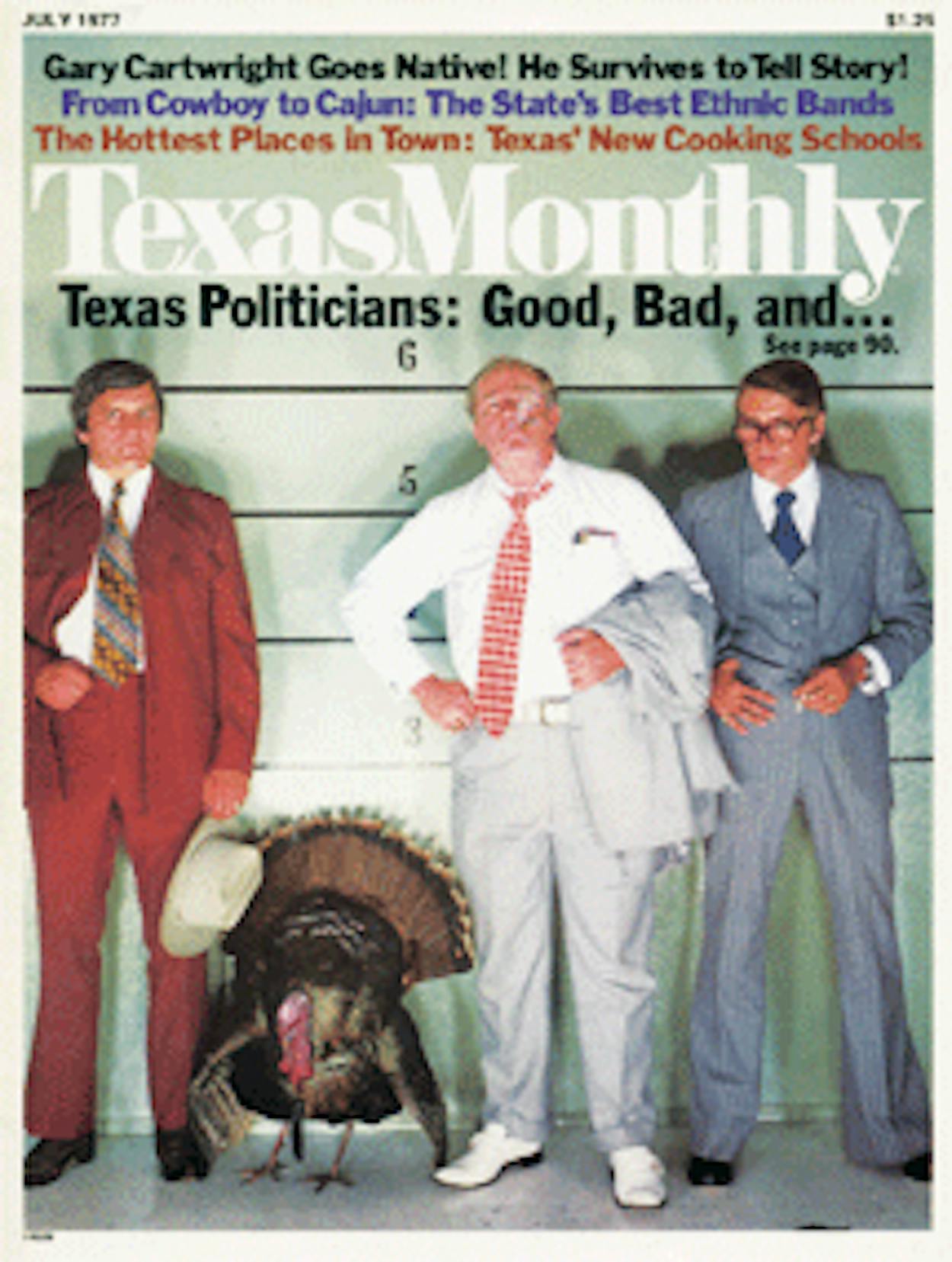There’s an old joke that goes like this: A girl is out milking the family cow one morning when a stranger rolls up and asks if her parents are at home. The girl yells out, “Mama, there’s a man here to see you!” Her mother peers out the door and, seeing the man, says to her daughter, “Get in the house! Haven’t I told you not to talk to strangers?”
“But, Mama,” the girl protests, “he says he’s a state senator.”
“Well, then,” says the woman, “bring the cow too!”
There’s a lot of this sentiment going around. Nobody likes politicians much these days. One unfortunate fact about our democracy is that only a relatively small number of citizens actually participate in it. Even last November, after a campaign that galvanized voters on the right, only 27 percent of the voting-age population in Texas cast ballots in the general election. What’s the matter with that other 73 percent? Why didn’t they care? A fair number of them are registered to vote, so it’s not correct to say they’re completely disengaged, but many of them, like the woman in the joke, probably feel that they’d just as soon stay away (along with their children and livestock) from all politicians. They don’t trust them. Or maybe they’re stymied by the complexity of issues like health care and school finance, unable to sort out the politics from the policy, and as a result the whole enterprise remains at arm’s length, something only half-understood and all too often ignored.
The premise of our Best and Worst Legislators story is that what matters most in determining the course of any session of the state legislature turns out to be something extremely straightforward and easy to comprehend: the behavior of the members toward one another and toward the lawmaking process. As at any workplace, there are those who make things run and those who don’t. After all, the Legislature is nothing more than a big group of people, with all the usual dull and bright spots. Look closely and you’ll find plenty of scoundrels, simpletons, and self-dealers, as well as a fair number of scholars, sages, and statesmen.
We’ve been sorting the one kind from the other since 1973. The inspiration for the first edition of the Best and Worst Legislators has been lost to history (among the editors present at the creation there is considerable disagreement about whether the idea came from a piece in Harper’s, New Times, or Philadelphia magazine), but what made the story stick was the wit and honesty brought to it by a string of great reporters, including Bill Broyles, Griffin Smith Jr., Richard West, Patricia Kilday Hart, Alison Cook, Kaye Northcott, Emily Yoffe, and of course, most of all, Paul Burka, with whom the story is almost synonymous. Paul has been working on the story, session after session, since 1975 and has attained in all that time a keen sense for what makes a Best and a Worst.
This issue marks the twentieth Legislature we have covered. The Capitol has changed dramatically over these four decades, as you’ll see when you browse through some of the bonus features in this year’s story, a brief history of the Legislature since 1973 (“Twenty Sessions”) and testimony from ten of our best former Bests (“Hall of Fame”). In 1977, for the third Best and Worst, we put three archetypal legislators on our cover, along with a turkey. This month’s cover pays homage to that one, but the casting is very different. In 1977 all three legislators were Anglo and male; today it’s a more diverse crowd. (Plus, there’s a chimpanzee—three of them, in fact—which seemed like the better joke to make about a Legislature that spent too much time monkeying around and had to be dragged back for a special session.)
Of these twenty sessions, the Eighty-second turned out to be the most contentious. It had everything: an onslaught of new members, a massive budget shortfall, stubborn partisanship in all directions, both a governor and a lieutenant governor flirting with the national stage, and a smorgasbord of issues, from school finance, campus carry, and redistricting to noodling, porkchoppering, and groping—and that was just the regular session! It’s enough to make you want to bring the cows into the house and bar the door. But don’t! We elected these people. They are our representatives. Let’s go outside and have a look at them.
- More About:
- Politics & Policy
- Texas Legislature







